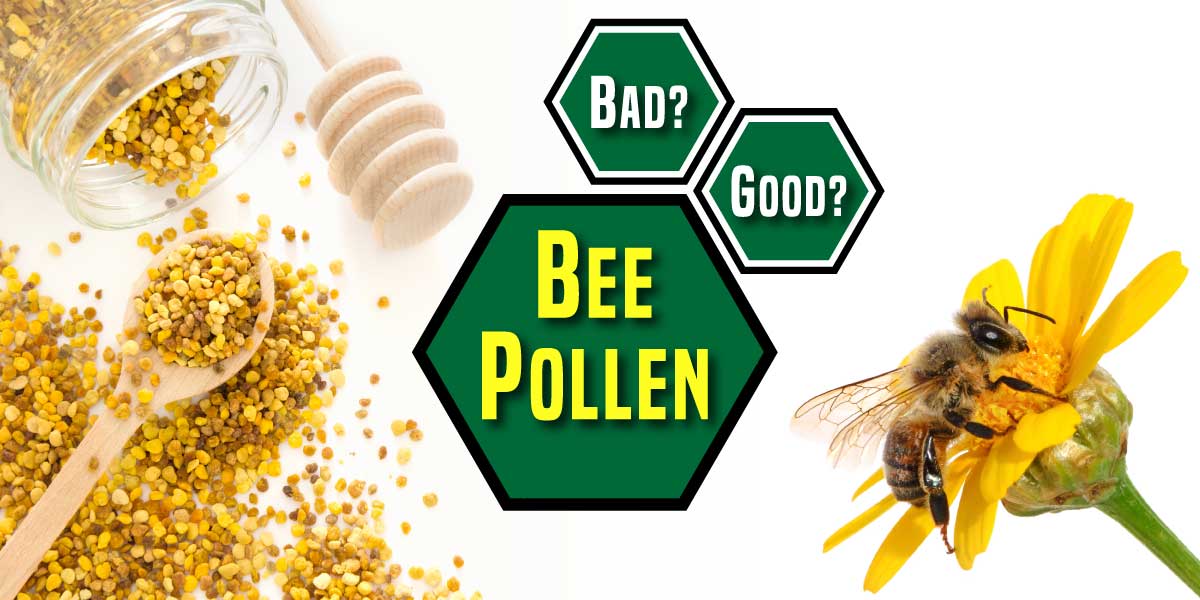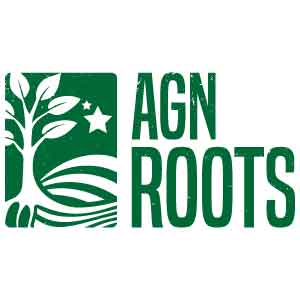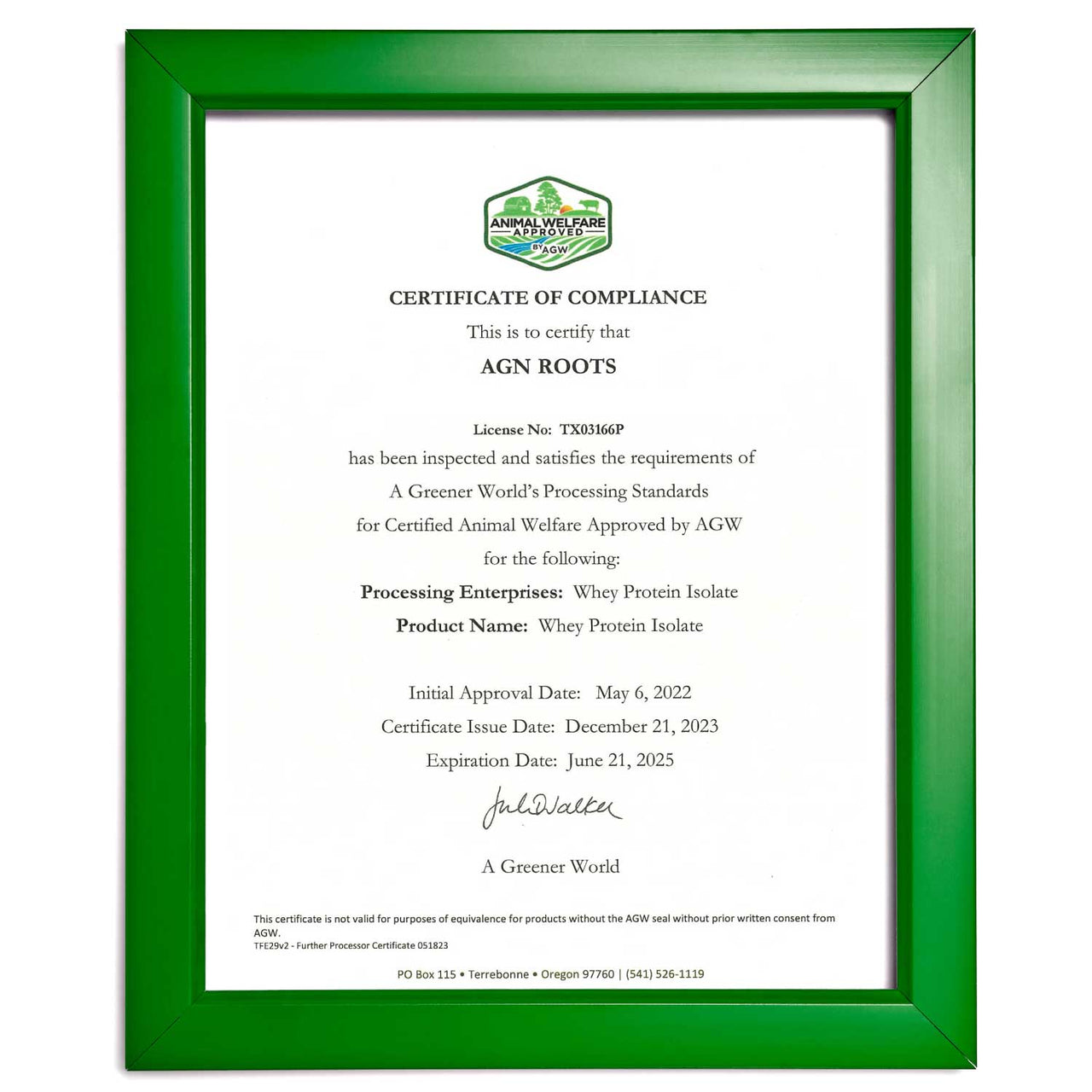Bee Pollen Benefits

Although unknown to many, the bee pollen supplement market continues to grow as demand for the superfood increases [1].
The surge in its popularity isn't surprising. More consumers are concerned with their health and wellness and are making a conscious effort to buy nutritious products that support that lifestyle. More knowledge, awareness, and accessibility allows people to make wise purchasing decisions that are valuable to their well-being.
Consuming bee pollen proves to be advantageous. There are several compelling and surprising bee pollen benefits with data to back their effectiveness. If you want to start a new year on a fresh foot, introducing bee pollen into your diet might be an appropriate step.
Of course, you'll want to familiarize yourself with bee pollen and its benefits before doing so—which may even include speaking to your doctor. It's always important to talk with a physician if you have questions or concerns.
In the meantime, with this guide, we attempt to highlight some of the most fascinating and illuminating benefits of bee pollen, informing consumers of their options.
What is Bee Pollen?
Bee pollen is little flower pollen balls similar in shape and size to a mustard seed. It contains nectar, plant pollen, and bee saliva. Worker bees carry in the plant pollen and bring it back to their hive, where they pack it into honeycombs before it undergoes a fermentation process.
Its texture is soft, and it quickly dissolves in the mouth. Bee pollen should never be crunchy.
Bee pollen is commonly a shade of yellow, but its colors can vary—that's due to the various flowers in which the bee collected pollen. So, you needn't be surprised if you see a whole range of colors in one order of granules [2].
As long as humans have adopted beekeeping, the benefits of consuming bee pollen have existed. The advent of bee pollen for medicinal purposes traces back centuries. Along with bee pollen serving as the main component for various medicines, it is also commonly used as a flavor enhancer and general nutrition.
How is Bee Pollen Collected?
Human-made beehives contain pollen traps at the entrance to the hive. As the bee enters through the small entrance ways with their bodies covered in pollen, the pollen traps catch any pollen that falls from the bee's legs upon entering the small space. The pollen is the result of the bee traveling from flower to flower, gathering nectar.
The pollen collections honey bees bring back to the hive can weigh up to half of the bee's body weight. It's important to note that bee pollen is not the bee's food source; the primary food source for bees is the flower's nectar.
The nectar that bees bring back to their hive accounts for the single and main ingredient for honey making. The produced honey the primary food source to nurture the bee offspring.
Do Bees Get Hurt When Their Pollen is Collected?
No, the collection of bee pollen is of no impact to the bees. The pollen is the result of bees gathering nectar and pollinating many flowers.
What Are the Nutrition Facts of Bee Pollen?
One tablespoon of bee pollen contains the following macronutrients:
- 40 calories.
- 0 grams of fat.
- 7 grams of carbs.
- 4 grams of sugar.
- 1 gram of fiber.
- 2 g of protein.
It also contains zero milligrams of both sodium and cholesterol.
Other nutritional facts about bee pollen include the following micronutrients:
- Vitamin C
- Lipids
- Complex carbohydrates
- Carotenoids
Its flavor is lightly sweet and floral in taste and aroma. It typically comes in jars, like spices. Now that you have a better understanding of what bee pollen is let's get into its advantages.
Surprising Bee Pollen Benefits to Know
How can this flower-forward pollen contribute to your life?
We explain a few reasons why below.
It's Rich in Antioxidants
Just like other fermented foods and drinks, bee pollen also benefits from a hearty dose of antioxidants [3].
These natural antioxidants include:
- Flavonoids
- Terpenoids
- Phenolic acids
And others.
These antioxidants are known to combat oxidative stresses that underlie many diseases, such as cancer or diabetes. They also have several therapeutic applications, with more current studies ongoing.
The effects aren't always the same, as bee pollen varies depending on factors like geographic location, the species of bee, and even the seasons. Additionally, the fermentation process can affect the efficacy of bee pollen. For example, was it a natural and spontaneous fermentation process, or was bacteria added during the process?
In general, though, bee products such as bee pollen, royal jelly, or propolis are commonly used for medicinal reasons due to their well-documented antioxidant properties.
It May Contribute to a Lower Risk of Heart Disease
The utilization of bee pollen can lower Several heart disease risk factors [4].
Research has shown that bee pollen extract can reduce specific symptoms such as high blood lipids, lipid oxidation, or cholesterol—most notably, "bad" cholesterol [5].
Additionally, with the reduction of lousy cholesterol, vision typically becomes clearer. This benefit is great for those with nearsightedness caused by high cholesterol levels.
Bee Pollen is Anti-Inflammatory
When something is high in antioxidants, there's an additional benefit to be enjoyed—anti-inflammatory properties [6].
As well as being anti-inflammatory, the above study showed anti-angiogenesis effects. That means that bee pollen was able to inhibit the growth of new blood vessels. In this case, cancerous ones.
The various vitamins, minerals, and antioxidants in bee products have shown fantastic effects on inflammation. In one study, the bee pollen inhibited enzymes that were interfering with the inflammatory process [7].
It Might Help Ease PMS Symptoms
If you or someone you know is experiencing the effects of premenstrual syndrome (PMS), you're likely looking anywhere for some relief. Some PMS symptoms include hot flashes, weight gain, and irritability.
Some early studies show supporting evidence that bee pollen can reduce the above symptoms when used in tandem with other products. As ongoing research continues, the initial results are promising.
In this instance, bee pollen compliments other bee products such as royal jelly.
Bee Pollen May Improve Your Ability to Use Nutrients
Perhaps you already have a hearty diet, but you're looking for more ways to make foods bioavailable to you. In some cases, bee pollen has shown to increase our ability to utilize nutrients, making their benefits that much more impactful.
Learn More: Bioavailability of Whey Protein Explained
Initial studies, albeit on rats, highlight the effects were worth noting. Bee pollen helped them metabolize a whole slew of nutrients—magnesium, phosphorus, calcium, and iron [8].
The study was conducted by administering both bee pollen and iron to iron-deficient rats. When studied against the control groups, the rats that consumed both bee pollen and iron absorbed up to 66% more iron—in other words, a massive improvement that we hope translates to humans, especially those with anemia.
Bee pollen is also being research as an aid in the regeneration efficiency of hemoglobin. In general, hemoglobin levels begin to drop in individuals experiencing anemia; thus, bee pollen provides some new hope. In this application, not only does bee pollen help our bodies absorb nutrients, but it helps reduce the adverse effects of iron deficiency.
Bee pollen acts in this way thanks to its make-up of protein and amino acid contents.
Does Bee Pollen Boost the Immune System?
Over time, various animal studies have recorded a positive response to immunity after using bee pollen [9].
In these studies, immune responses improved in the subjects. Additionally, many other positive benefits became recognized -
- Reduction in the effects of radiation
- Antiaging (attributed to the antioxidant benefits)
- Stimulation of Immune functions
- Improvement in Immunocompetence (valid even when considering allergies [10])
When mast cells are activated, they release chemicals that trigger allergic reactions. A study using bee pollen noted that bee pollen significantly reduced these mast cells' activation. As such, allergic reactions became minimized.
Now more than ever, a robust immune system has high value. For a small but scalable boost in yours, bee pollen might be one solution to consider.
Also, suppose you are in the market for a homeopathic solution to combat the typical chemo-therapy related side-effects. In that case, although not proven scientifically, there exists a sizable population that genuinely believe in bee pollen to be impactful in this arena.
How Does Bee Pollen Boost the Immune System?
The immune-boosting impacts of consuming bee pollen stem from the multiple rich polyphenols that make up the pollen's molecular structure. The polyphenol structure possesses robust anti-inflammatory characteristics, phytosterols, and fatty acids, known to work in anti-cancerogenic ways. Polysaccharides also naturally stimulate a beneficial immunological response.
Learn More: 3 Types of Polysaccharides
Does Bee Pollen have Antibacterial Properties?
Not only is bee pollen full of antioxidants, but studies have shown a significant amount of antibacterial and antimicrobial properties [11].
When immunity receives a boost, unwanted bacteria struggle to thrive. The immunity benefits can have a slew of advantages, from preventing illnesses such as Salmonella and E.coli to reducing the chances of staph infections.
The antibacterial attributes of consuming bee pollen are primarily due to bee pollen's fermentation process—all of which lead to the same results [12]:
- Boosted immunity
- Enhanced nutrition
- Improved biological activities
The key is how bee pollen's natural microflora contribute to its fermentation process. However, pasteurized bee pollen is known for being significantly less effective in these ways, despite offering a safeguard against unknown sourcing.
Is Bee Pollen Accessible?
Have you ever seen a health and wellness trend advertised that was just out of your reach?
Perhaps it was too expensive, didn't have enough supporting data, or just wasn't accessible in your location. Maybe an advertisement for juice cleanses came up on your computer screen, and you sighed, knowing your allergies wouldn't allow you to participate in that.
Unfortunately, many fads that claim to work just don't—and in the meantime, they empty your wallet. In the case of bee pollen, the local drug store is bound to carry a brand or two and for relatively cheap (under $10).
Finding something that's both nutritious and delicious shouldn't be such a challenge, but it can be for many. When it comes to bee pollen, however, that's not the case. Bee pollen is everything consumers want in a product, which is why its popularity continues to be on the rise across the world; Bee pollen is not very hard to find and exists where bees thrive.
So, when you're looking for an affordable pick-me-up that's easy to incorporate into your daily routine, consider bee pollen. And if you need ideas on adding bee pollen into your diet, we discuss some options below.
Ideas for Incorporating Bee Pollen Into Your Life
How can you begin to introduce this superfood into your life?
One of bee pollen's other benefits is its versatility. You can easily add bee pollen as a topping on a wide range of meals—from smoothies (like this bee pollen and chia seed protein smoothie) and bowls of yogurt to granola and acai.
You can also add to it several other dishes, such as salads, dressings, and soup [13]. So, don't be afraid of getting creative!
However, one thing to note is that bee pollen's benefits are most substantial in the raw state. When you add it to your daily smoothie or vinaigrette, you are locking in all the potential benefits. In this way, you reap the most nutritional value from it.
Start in small increments—think ½ of a teaspoon to a whole teaspoon to begin—and gradually build up from there if you're enjoying it.
Now that you understand the benefits of eating bee pollen and how to do so, we explain some things to be cautious of next.
Side Effects of Bee Pollen
If you're ever unsure of something, you should seek medical advice. While bee pollen offers much nutritional value, some individuals can experience adverse effects.
Like all nutritious consumables, efficacy and safety depend on sourcing and the individual response to the consumption.
Those with allergies to pollen might experience an allergic reaction after ingesting bee pollen. If you're allergic to any pollen—dandelion, ragweed, etc.—you should make it a point to talk to your doctor about bee pollen first. The same rule applies to anyone allergic to bees or honey.
Others that should be cautious of eating bee pollen include those on blood-thinning medication, as bee pollen can interact with Coumadin. Bee pollen may also cause uterine contractions, which is something pregnant or breastfeeding women should consider.
Although bee pollen appears to be safe for most people as advertised, bee pollen can solicit life threatening allergic reactions. The severity of the allergy is dependent on many things however the immediate symptoms include:
- Respiratory issues (shortness of breath)respiratory
- Hives & Swelling
- Anaphylaxis
According to various health experts, Bee pollen is not safe for pregnant women for the same reasons mentioned above [14].
In general, however, bee pollen is suitable for most people. It never hurts to get a second opinion from a medical professional. At AGN Roots, we have no skin in this game, nor do we make or sell bee pollen; however, we love researching answers for customers who have challenged us to incorporate nature's best into our grass-fed whey protein recipes. In this case, bee pollen is no doubt a beneficial addition assuming you've done your research.
What Are the Benefits of Bee Pollen?
As this guide implies, the bee pollen benefits are plenty. The result of using it is a happier, healthier life, and hopefully, one with even more longevity (a widely studies topic lately).
This natural and organic product comes with a slew of health benefits—its sweet, floral flavor is a bonus. Not only is bee pollen nutritious, but it can elevate a ton of your favorite recipes. That makes introducing it into your lifestyle that much easier.
Recipe: Bee Pollen Green Smoothie
Are you interested in eating or consuming bee pollen? Now you can make an informed decision on what to buy.


